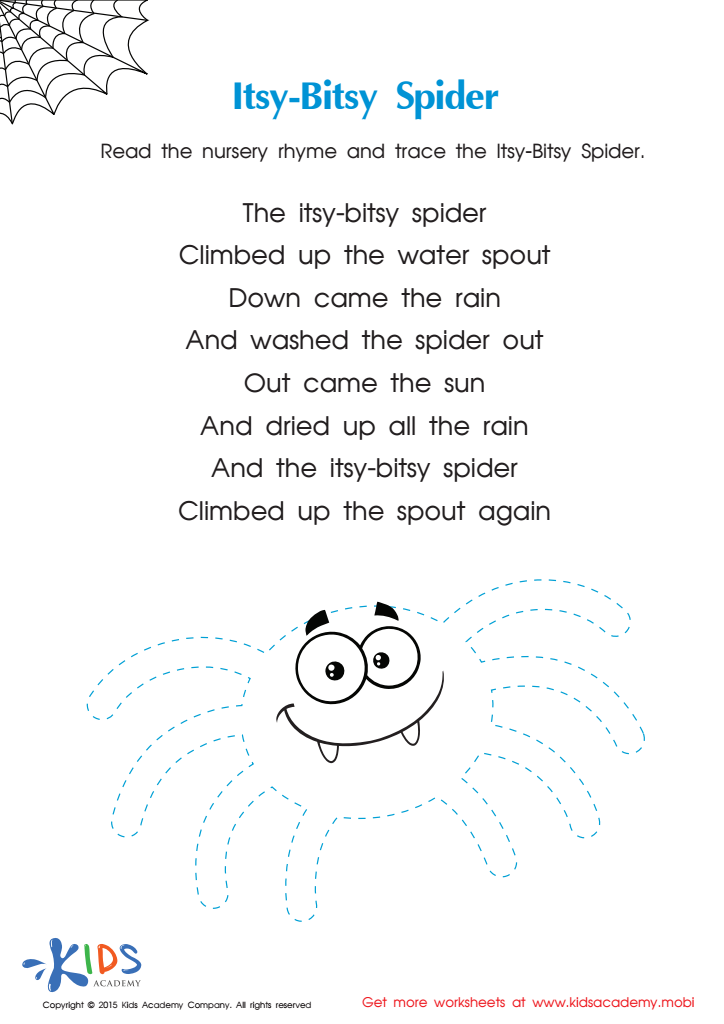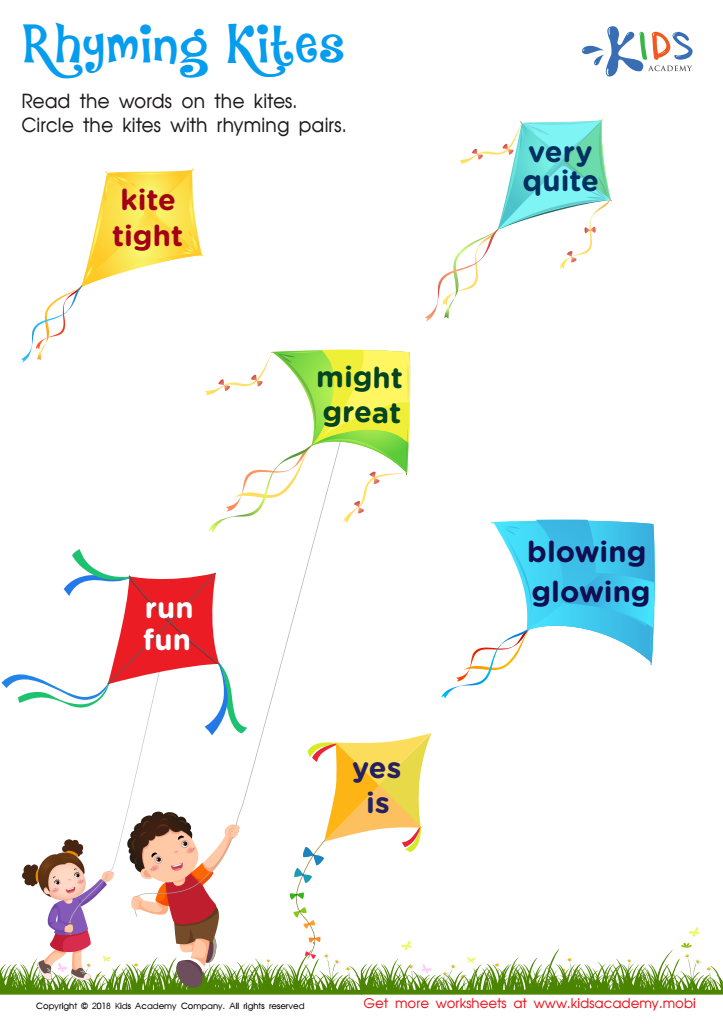Rhyming skills Worksheets for 7-Year-Olds
3 filtered results
-
From - To
Enhance your child's literacy with our engaging Rhyming Skills Worksheets designed for 7-year-olds! These worksheets provide a fun and interactive way for kids to recognize, generate, and match rhyming words. Early exposure to rhyming builds phonemic awareness, boosting reading and writing skills. Each activity is carefully crafted to align with educational standards, making learning enjoyable while reinforcing essential language concepts. Perfect for both classroom and home environments, our worksheets foster creativity and critical thinking, helping your child develop a love for language. Download now and watch your young learner thrive with these delightful rhyming exercises!


Itsy Bitsy Spider Nursery Rhyme PDF Worksheet


Rhymes in Poems Worksheet


Rhyming Kites Worksheet
Rhyming skills are a crucial aspect of early literacy development for 7-year-olds and deserve attention from both parents and teachers. First, rhyming helps build phonemic awareness, which is the ability to recognize and manipulate sounds in words. This awareness is foundational for reading, as it enables children to decode and spell words more effectively. When children engage in rhyme, they become attuned to sound patterns, enhancing their ability to identify rhymes in unfamiliar words, which boosts their overall reading fluency.
Additionally, developing rhyming skills fosters creativity and imaginative play. Children enjoy playing with sounds, leading to richer language experiences and storytelling abilities. This literacy playfulness not only engages kids but also improves vocabulary and comprehension skills.
Furthermore, rhyming contributes to improved memory and cognitive growth. The rhythmic, playful nature of rhyming makes it easier for children to remember words, sounds, and sequences, reinforcing learning.
In a social context, sharing rhymes strengthens communication and bonding between parents and children or teachers and students. Ultimately, when parents and educators invest in nurturing rhyming skills, they are encouraging the cognitive, linguistic, and social development that paves the way for future academic success.

 Assign to My Students
Assign to My Students



.jpg)












